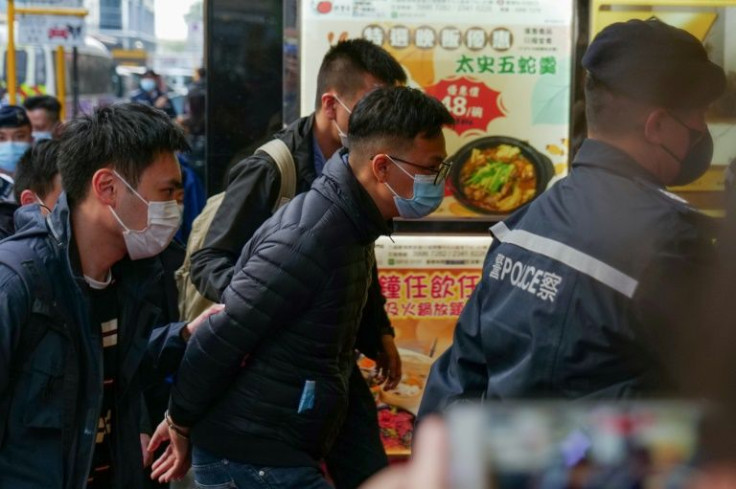China Prepares Hong Kong For An Early Burial Of One Country, Two Systems

Pro-democracy protests in 2019 would not have erupted in Hong Kong without the support of three critical areas: the education sector, legal system, and the media.
With the last two falling into the hands of China, it seems the Communist regime is planning to junk the One Country, Two Systems before its official expiry in 2047.
At a time when China is accusing the US of unilateralism, will Beijing unilaterally break an international accord on its premier Hong Kong Special Administrative Region (HKSAR) which is also the financial hub of Asia?
When China reclaimed Hong Kong in 1997, it agreed that Hong Kong's form of government, courts, free press, trade relations, financial system and its "capitalist way of life" should remain unchanged for 50 years: "One Country, Two Systems", as called by Deng Xiaoping, then China's leader.
Though China largely kept to the deal, some of the territory's autonomy was eroded in the 2000s with the pro-democracy uprisings in 2019.
The pro-democracy protests were spearheaded by students and youths, which used both traditional and social media to mobilize the crowd in its favor. China traced the excessive media freedom offset by a thriving economy as one of the reasons behind the bloody uprising and decided to act against the media, despite the opprobrium it would face should it break its word.
Going by the latest indication concerning the media freedom in the former British colony, China is bracing for confrontation with the West and the UK, another party to the 1997 pact.
China has already made it difficult for two pro-democracy newspapers, Stand News and Apple Daily. On Dec. 29, police conducted the raid on the office of online pro-democracy media outlet Stand News, set up in 2014 as a non-profit, which became the latest victim before the closure of jailed tycoon Jimmy Lai's iconic Apple Daily tabloid earlier last year.
Police said in a statement that they were conducting the raid "to search and seize relevant journalistic materials".
In June, police raided the premises of Apple Daily, arresting its executives for alleged "collusion with a foreign country". The popular newspaper later shut down after the authorities froze its assets.
Police, however, have not yet disclosed which Apple Daily or Stand News articles they considered seditious.
Lai, 74, already faces two charges, including collusion with a foreign country, under a sweeping national security law that China imposed on the former British colony last June, bypassing the Hong Kong legislature.
The June 2020 law punishes terrorism, collusion with foreign forces, subversion, and secession with possible life imprisonment.
The media tycoon is accused of conspiracy to print, publish, sell, distribute "seditious publications" between April 2019 and June 24, 2021.
After the raid on Apple Daily, Stand News said it would end accepting donations from readers and had taken down commentaries, alleging that "speech crimes" had come to Hong Kong.
Lai's repeated arrests and prosecutions have drawn criticism from the West and international human rights groups, who say the new law is being used to jail pro-democracy campaigners and to crush media freedom.
During this time, China also curbed the presence of pro-democracy lawmakers, who were lending support to the student stirs, in Hong Kong's legislature with a new law that allows "patriots only" legislators.
This exercise to get rid of a boisterous opposition was completed Jan. 3 when new 90 members swore oaths of allegiance as the legislature was convened for the first time following a new selection process that barred the traditional democracy opposition.
In a ceremony laden with symbolism, the city's traditional emblem was replaced by China's with only 20 of the 90 seats were directly elected, while the rest are handpicked by various pro-China committees.
With China curbing media and legislative freedoms, most of Hong Kong's known democracy activists are either in jail or have fled overseas or left politics.
Next, China will be eying the education sector to purge "the unwanted elements."
As China has started to flout the norms under the One Country, Two Systems, will Hong Kong be able to retain its status as the Asian financial hub given the US and UK control over global finance?





